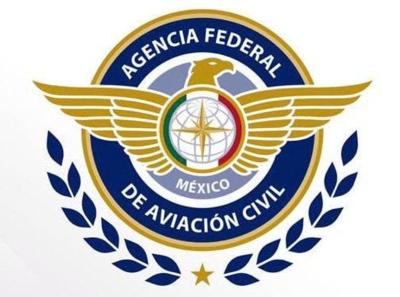Wed, May 26, 2021
Announces Results of Mexico’s Most Recent Safety Assessment
The FAA has announced that the Government of Mexico does not meet International Civil Aviation Organization (ICAO) safety standards. Based on a reassessment of Mexico’s civil aviation authority, the FAA has downgraded Mexico’s rating to Category 2 from Category 1.

While the new rating allows Mexican air carriers to continue existing service to the United States, it prohibits any new service and routes. U.S. airlines will no longer be able to market and sell tickets with their names and designator codes on Mexican-operated flights. The FAA will increase its scrutiny of Mexican airline flights to the United States.
The FAA is fully committed to helping the Mexican aviation authority improve its safety oversight system to a level that meets ICAO standards. To achieve this, the FAA is ready to provide expertise and resources in support of the Agencia Federal de Aviacion Civil's (AFAC) ongoing efforts to resolve the issues identified in the International Aviation Safety Assessment (IASA) process. Both AFAC and FAA share a commitment to civil aviation safety. Sustained progress can help AFAC regain Category 1.
During its reassessment of the Agencia Federal de Aviacion Civil (AFAC) from October 2020 to February 2021, the FAA identified several areas of non-compliance with minimum ICAO safety standards.

A Category 2 rating means that the country’s laws or regulations lack the necessary requirements to oversee the country’s air carriers in accordance with minimum international safety standards, or the civil aviation authority is lacking in one or more areas such as technical expertise, trained personnel, record keeping, inspection procedures, or resolution of safety concerns.
Under the IASA program, the FAA assesses the civil aviation authorities of all countries with air carriers that have applied to fly to the United States, currently conduct operations to the United States, or participate in code-sharing arrangements with U.S. partner airlines. The assessments determine whether international civil aviation authorities meet minimum ICAO safety standards, not FAA regulations.
To obtain and maintain a Category 1 rating, a country must adhere to the safety standards of ICAO, the United Nations’ technical agency for aviation. ICAO establishes international standards and recommended practices for aircraft operations and maintenance.
More News
He Attempted To Restart The Engine Three Times. On The Third Restart Attempt, He Noticed That Flames Were Coming Out From The Right Wing Near The Fuel Cap Analysis: The pilot repor>[...]
Make Sure You NEVER Miss A New Story From Aero-News Network Do you ever feel like you never see posts from a certain person or page on Facebook or Instagram? Here’s how you c>[...]
From 2009 (YouTube Edition): Leading Air Show Performers Give Their Best Advice for Newcomers On December 6th through December 9th, the Paris Las Vegas Hotel hosted over 1,500 air >[...]
Aero Linx: NASA ASRS ASRS captures confidential reports, analyzes the resulting aviation safety data, and disseminates vital information to the aviation community. The ASRS is an i>[...]
“For our inaugural Pylon Racing Seminar in Roswell, we were thrilled to certify 60 pilots across our six closed-course pylon race classes. Not only did this year’s PRS >[...]
 NTSB Final Report: Rutan Long-EZ
NTSB Final Report: Rutan Long-EZ ANN FAQ: Turn On Post Notifications
ANN FAQ: Turn On Post Notifications Classic Aero-TV: ICAS Perspectives - Advice for New Air Show Performers
Classic Aero-TV: ICAS Perspectives - Advice for New Air Show Performers ANN's Daily Aero-Linx (06.28.25)
ANN's Daily Aero-Linx (06.28.25) Aero-News: Quote of the Day (06.28.25)
Aero-News: Quote of the Day (06.28.25)




